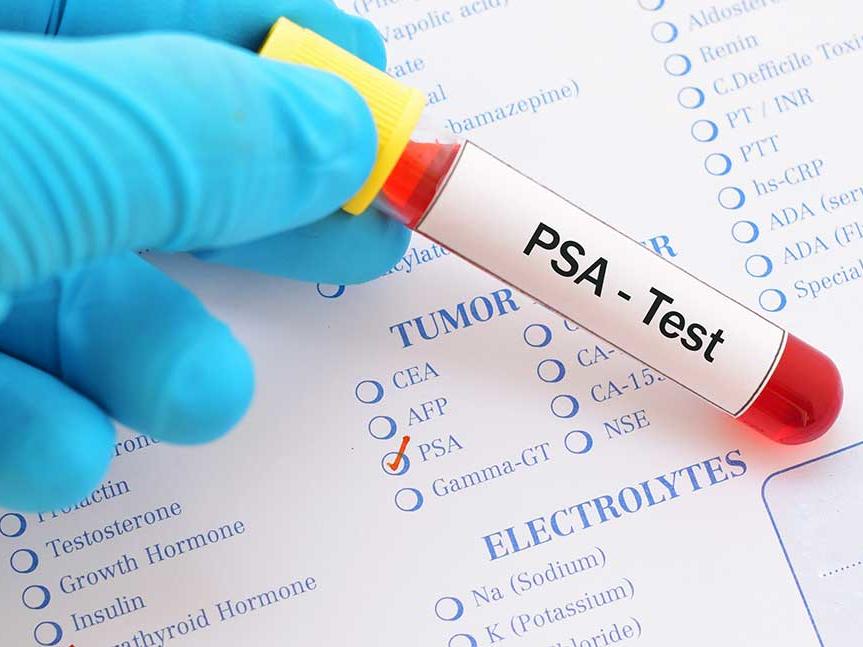What is prostate cancer?
The prostate is a gland found in male bodies that surrounds the urethra and is crucial in the development of semen. Prostate cancer is a disease predominantly affecting middle-aged and older men, where cells in the prostate gland multiply rapidly and form a tumor. The disease affects about 1 in 7 men [2].

Prostate cancer can develop at an early stage without pain, but can become fatal in later stages. Hence, early detection is essential for men.
The Genetics
Aside from environmental factors, the form and function of our entire body is encoded in our DNA. This is a molecule contained in all of our cells, and the code, split into genes, is formed by sequences of 4 letters: A, C, T, and G. Although there are billions of these letters throughout our DNA, even a small change—or mutation—can drastically damage the human body.

Research has shown that some of these miniscule mutations, particularly in any of 5 specific genes, are strongly linked to prostate cancer development. There is also another gene, called BRCA1, that helps code for proteins that suppress tumor growth. This gene corrects mistakes that are made when duplicating our DNA, so that (in theory) our genes stay the same over time. Put more simply, BRCA1 works to prevent mutations—which may cause tumor growth—from occurring.
Why get tested?
With this information alone, any man would consider getting a genetic test for prostate cancer, and for good reason. Even having 2 of the 5 aforementioned mutations could double your odds of developing the disease [1]! And inherited mutations (those which are often passed down from family members) in BRCA1 and similar genes monumentally increases cancer risk [2]. Knowing your odds is key to detecting prostate cancer early (when it is low-risk), treating it before the tumor grows out of control, and ultimately beating the disease.
If you’re looking for a genetic test, try out the SNP-chip, which can detect such single-letter mutations across different genes for around $300. But you may want to consider the alternatives first.
Alternatives
There are many ethical issues of genetic tests. Depending on how much of your DNA you want sequenced, the results can tell you about untreatable and uncurable diseases. Also, many companies will sell data and infringe on your privacy, so it is crucial to use a reputable service.
Additionally, the genetic test may not even be accurate. In fact, most cases of the cancer are somatic mutations, types that occur throughout a person’s lifetime and are hence not inherited. In this case, a genetic test can give a false sense of security. Even family history may only account for around 50% of cases of the disease [2].
As an alternative, there are more precise tests and screenings that can detect prostate cancer at an early stage. The two most common are rectal exams and PSA tests (a specific blood test), which have proven to be accurate and recommended by doctors [3].

Personal Considerations
Family history alone can have the same effect in increasing your odds as a single one of the above mutations. In these cases, it may be advantageous to get a genetic test at a young age, before the disease even starts to develop.
However, there is little danger in waiting until your late 30s or early 40s, when prostate cancer could be at an early stage of development to get tested. In this case, more-accurate rectal exams and PSA screenings are recommended, especially for those with family history.
It should be noted that there are potential side-effects to treating (or overtreating) prostate cancer, such as erectile dysfunction and infections [4]. In some cases, the disease can be nonfatal and unharmful. However, since prostate cancer can likely become fatal if not treated early, the choice of whether to take action against it is clear. It is never too early to talk to your doctor about your risks!
Sources
[1] Zheng SL, Gelmann EP, Kearon C, Kapur J, Center for Human Genomics. Cumulative Association of Five Genetic Variants with Prostate Cancer: NEJM. https://www.nejm.org/doi/full/10.1056/NEJMoa075819. Published February 28, 2008.
[2] Prostate cancer – Genetics Home Reference – NIH. U.S. National Library of Medicine. https://ghr.nlm.nih.gov/condition/prostate-cancer. Accessed December 3, 2019.
[3] Prostate cancer prevention and early detection. Prostate cancer prevention and early detection | Seattle Cancer Care Alliance. https://www.seattlecca.org/diseases/prostate-cancer/early-detection-prevention. Accessed December 3, 2019.
[4] What Are The Side Effects Of Prostate Cancer Treatment? Prostate Cancer Foundation. https://www.pcf.org/about-prostate-cancer/prostate-cancer-side-effects/. Accessed December 3, 2019.
